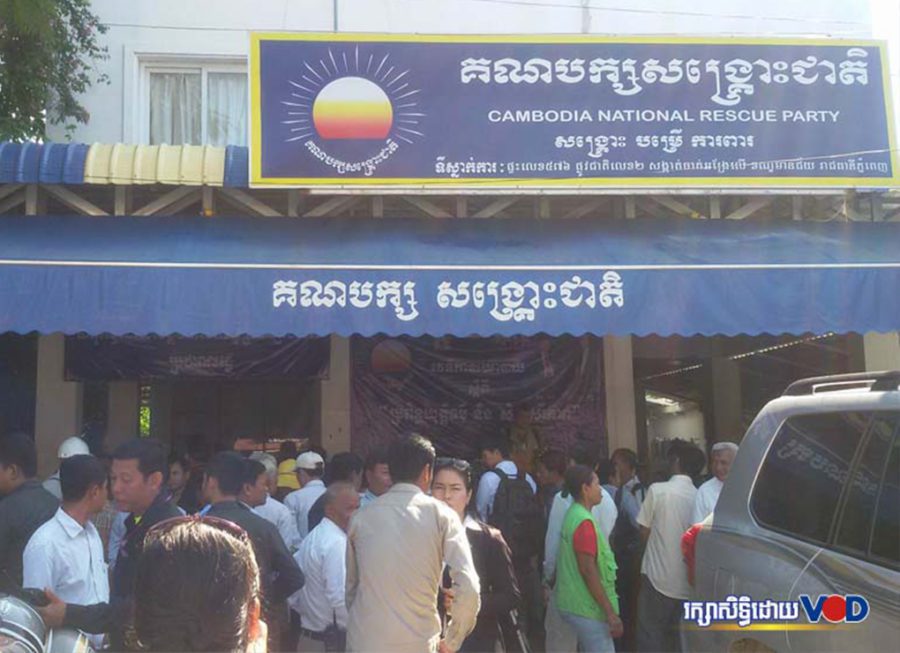Labeled “traitors” by opposition leaders, nine former members of the Cambodia National Rescue Party (CNRP) walked away from the beleaguered opposition party to have their ban on political activities lifted by the government.
Prime Minister Hun Sen had encouraged their separation from the opposition, which was dissolved in November 2017 ahead of last year’s national election, aiming to sow seeds of division among what was once a formidable united bloc.
Still, several observers of Cambodian politics say that the nine — six of whom promised this week that they would keep working for the CNRP’s cause — are unlikely to affect any balance of power, whether for the ruling or opposition party.
Kim Sok, a political analyst granted political asylum in Finland, said that the decisions of the nine to seek the reinstatement of their political rights showed some cracks in the opposition’s unity. But he said it would likely not affect the CNRP as long as the two co-founders — Kem Sokha, under house arrest in Phnom Penh, and Sam Rainsy, in self-imposed exile in France — stood together.
The number of officials walking away from the CNRP would need to increase fivefold to make a difference, Sok said. Meanwhile, Sokha’s release, one of the CNRP’s main goals, can only be achieved by international pressure, he said.
“If giving full political rights to Kem Sokha could threaten the power of Hun Sen, it is clear that Hun Sen absolutely will not release Kem Sokha,” Sok said.
Another prominent political analyst, Em Sovannara, said that he believed the government would only release Sokha if the two party co-founders — formerly rivals, and frequently at odds — drifted far enough apart that they could be split.
The government was trying to weaken the opposition by cutting off its leaders and dividing its members, Sovannara said. But this course of action, he said, was “Cambodian-style democracy,” not true democracy, and would only help to raise the international pressure on Cambodia, eventually triggering sanctions.
“By keeping with the principles of Cambodian-style democracy, Cambodia will face the risk of losing the EBA,” Sovannara said, referring to the EU moving to suspend the Everything But Arms preferential trade agreement with Cambodia.
Ly Srey Sros, a young political analyst, said she thought there was little chance that the reinstated opposition politicians could do anything to pave the way for the release of Kem Sokha with their newly recovered political freedoms.
The government, though, was playing a dangerous game by continuing to detain the opposition leader, Srey Sros said, especially amid the recent sanction threats.
“The European Union has demanded the release of Kem Sokha, so if the government released him, it would be a positive action by the government and help our country avoid risk,” Srey Sros said.












